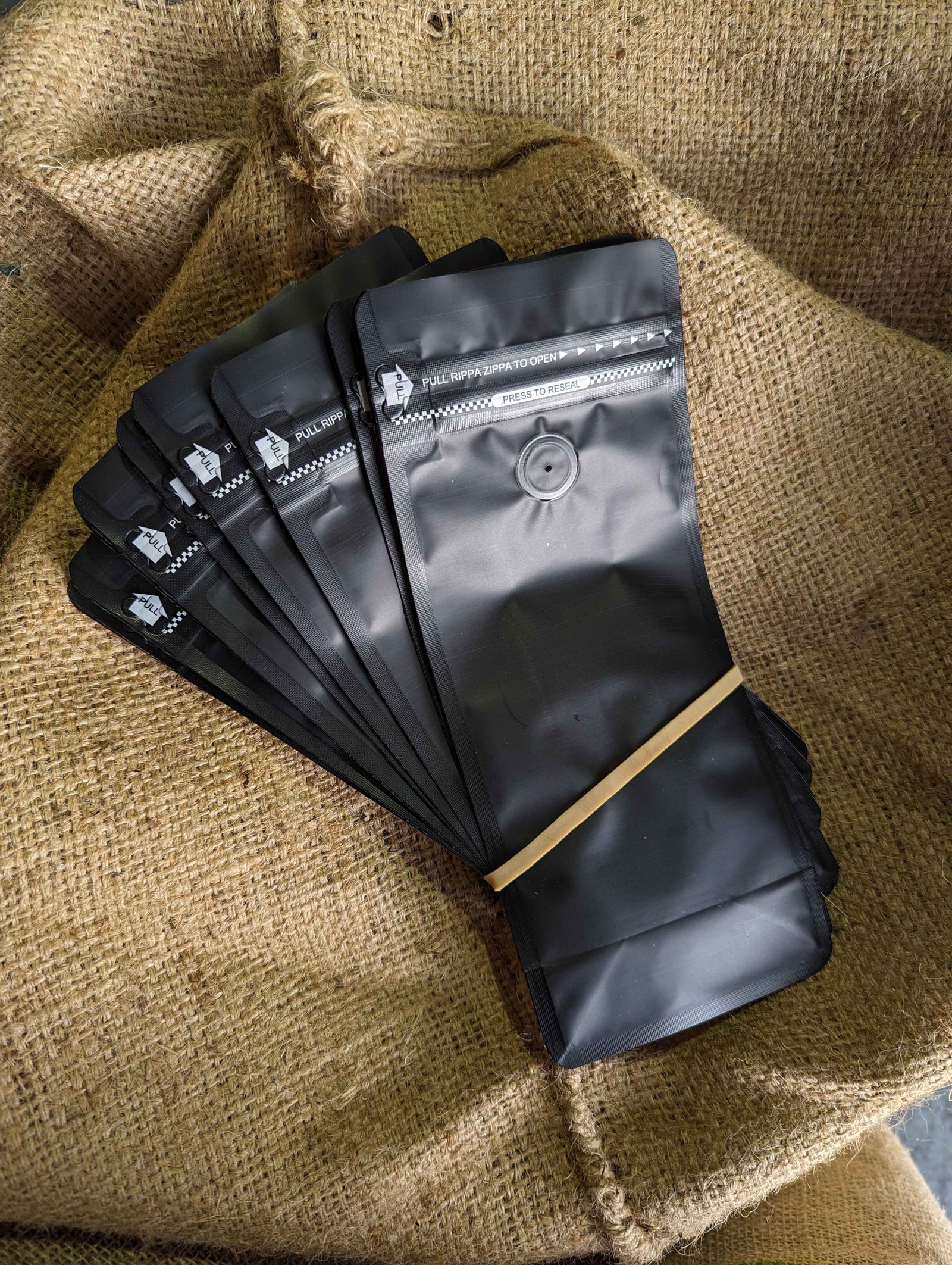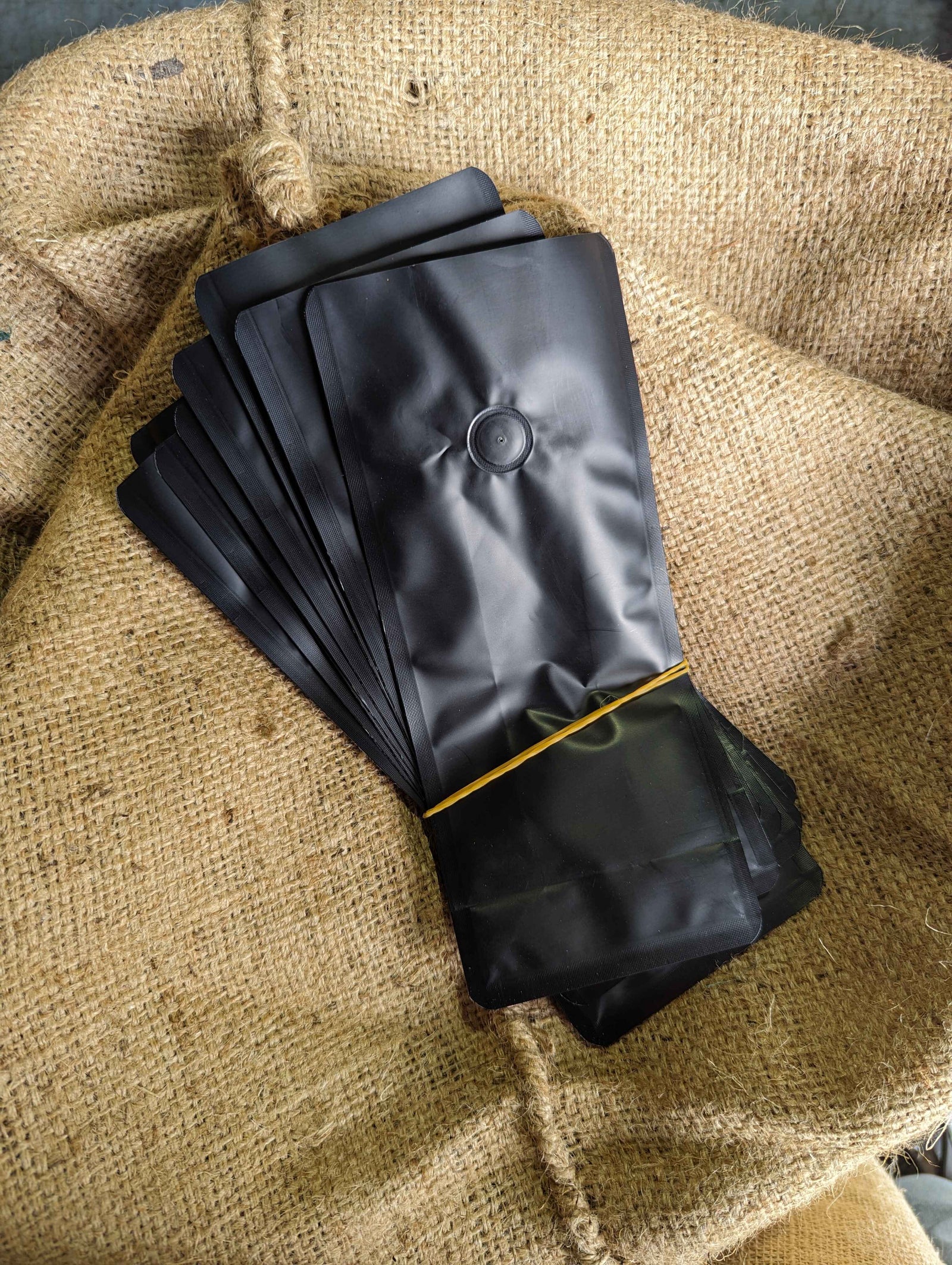OVERVIEW:
Rwanda’s transformation from post-genocide recovery to a thriving specialty coffee producer is nothing short of remarkable. This Horizon Supreme Grade 1 Natural Arabica from the Huye district is a stunning expression of Rwanda’s high-altitude terroir. Expect vibrant berry and plum notes, layered with soft winey acidity and a full body. The finish is elegant and complex, with hints of whiskey, almond, and lime, showcasing the potential of natural-processed Bourbon from Rwanda’s southern highlands.
PRODUCERS:
This coffee comes from 1,200 smallholder farmers who deliver cherry to Horizon Station, operated by Fidel Ndagijimana in partnership with the Rwanda Trading Company (RTC). Most contributing farmers have small plots—often fewer than 1,000 trees—intercropped with subsistence crops. Farmers receive support through RTC’s Agribusiness Training Program (ATP), which equips them with tools to improve quality and increase income. Notably, 70% of Horizon’s workforce is women, reflecting Rwanda’s progress in gender equity within agriculture.
ALTITUDE AND LOCATION:
The Horizon Station is located at 1,680 meters in the Kigoma sector of Huye district, with contributing farms reaching up to 2,000 meters above sea level. The station is tucked into a lush, scenic area surrounded by steep slopes, avocado trees, and wild pineapple. Ample rainfall and rich volcanic soils contribute to slow cherry maturation and complex cup development.
PROCESSING – NATURAL (DRY PROCESS):
At Horizon, coffee is naturally processed, meaning ripe cherries are dried whole under the sun. This enhances fruit character and body. The station recycled cherry pulp into organic fertilizer, using lime and molasses to create effective microorganisms (EM), boosting both sustainability and soil health. Quality control protocols introduced in 2018 ensure meticulous cherry sorting, uniform drying, and clean, consistent profiles.
HISTORICAL CONTEXT:
Coffee was introduced to Rwanda by German missionaries in the early 1900s and expanded under Belgian colonial rule, which made coffee farming compulsory. While the industry suffered under exploitative conditions and collapsed following the 1994 genocide, it has since been revitalized. The National Coffee Strategy launched in the early 2000s prioritized specialty production, traceability, and infrastructure. With over 300 washing stations and strong government and private support, Rwanda is now a recognized origin for clean, expressive Bourbon coffees.

 Matte Black Coffee Bag Bundle - With Valve & Rippa Zippa
Matte Black Coffee Bag Bundle - With Valve & Rippa Zippa Matte Black Coffee Bag Bundle - With Valve
Matte Black Coffee Bag Bundle - With Valve






